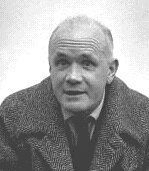The Sick New World embraces anti-mourning's latest prop, huggable urns, the radio informs... 
But leaving that, where we found it, this is a rare confessional post about animal
friends, specifically dogs, their being-unto-death philosophically considered, somewhat, and other things.
Essay
So many poems about the deaths of animals.
Wilbur's toad, Kinnell's porcupine, Eberhart's squirrel,
and that poem by someone–Hecht? Merrill?–
about cremating a woodchuck. But mostly
I remember the outrageous number of them,
as if every poet, I too, had written at least
one animal elegy; with the result that today
when I came to a good enough poem by Edwin Brock
about finding a dead fox at the edge of the sea
I could not respond; as if permanent shock
had deadened me. And then after a moment
I began to give way to sorrow (watching myself
sorrowlessly the while), not merely because
part of my being had been violated and annulled,
but because all these many poems over the years
had been necessary,–suitable and correct. This
has been the time of the finishing off of animals.
They are going away–their fur and their wild eyes,
their voices. Deer leap and leap in front
of the screaming snowmobiles until they leap
out of existence. Hawks circle once or twice
around their shattered nests and then they climb
to the stars. I have lived with them fifty years,
and now they are going, almost gone. I don't know
if the animals are capable of reproach.
But clearly they do not bother to say good-bye.
-Hayden Carruth,
Brothers I Loved You All (Poems 1969-1977)
(Roger wisely
recommends the above, and I have to agree.)
Keeping with the spirit of indirectly or barely thinking posts, I had planned on mentioning at least in passing Carruth, one of Vermont's finest poets, and this in lieu of a long and self-indulgent list of anecdotes about a friend who was a dog–a sister or daughter (and of course, mother, as all female dogs especially without pups are) of sorts; named "Sheena" though sometimes known simply as "my girl"–who passed away last week, lying in the summer night beneath a piano, having not eaten for three weeks. She often resembled in expression, somewhat uncannily, the animal pictured on the cover of
Grenier's book (which I had read long ago, and should like to re-read now). Only the tiniest bit more blunt-nosed and muttish, curly-haired, retrieverish, perhaps.
Her will was strong, and she was I think sad, and reluctant unto death–as most are. As for "the end"–whenever this moment is ascribed–I suppose it was peaceful–as most people try to make themselves believe. And it was, at least in the sense that she had been awaiting death to (not)come, and probably died in her sleep, of a heart-attack or something similar (after consciousness had faded, I wish to believe).
She had lost her appetite, most likely as result of cancer–she was 16 (older than
some), and we didn't do the expensive testing, tests that could only lead to more expensive and invasive treatment. We fed her on tuna oil, sardines, hamburgers and bread for as long as she would have it (mainly trying to keep her in fluids, and so as comfortable as possible). I confess to wishing for a drug, something to make her feel absolutely great–or at least no discomfort–one last time. To give her that gift–one last new experience/realm of pleasure–as a sort of inadequate thanks, but mostly just for her. But it wasn't to be.
The next morning her bony body was wrapped in a blanket and buried, in a spot she had chosen only days before (secluding herself away there by the garden, before being found and brought back inside one last time–
we weren't ready yet). She had witnessed, such as dogs are able, the passing of two others (in that very house), but she was the first to go naturally (and the first not to be cremated). While not visibly in pain, by the end could barely lift her head. Or so I hear.
Having said imperfect goodbyes, I was off to do that Nature thing again, whereby one speedwalks through the woods (this time suburb-smelling woods), up mountains and by national civic memorials and massive powerlines in thunderstorms with a heavy pack of tasteless food, sweats rivers and drinks painstakingly filtered water, massages aching feet and sleeps in stuffy, 70-year-old shelters with other grimy and unshaven, snoring sweating people. People requiring a minimum of acknowledgement, but most often nice enough. People for whatever reason having decided to forsake the Starbucks world for seven months or so. Or rather, to forsake it for a week of swollen feet at a time, to binge on pizza, beer and hamburgers one fine anyday (or, in our case, other people's wedding cake and booze). Strange form of torture, this routine of binge and asceticism. Difficult to maintain in good spirits (Thoreau he was a pathologic liar)–once it becomes like any job, no longer novelty. Or so I hear.
Anyway owning and enjoying my own grumpiness somewhat, while hiking fast, was nothing terrible, and often the sensation of hiking was pretty great. Being cluster-bombed by aircorns at five in the morning, in a shelter with a metal roof, was even pretty great. The guilty chipmunk family, who are certainly legends by now, do it mostly for the sport, I wager, to provoke and tease the tired people into lurching furiously out and hurling back, which is entirely futile of course. Throwing anything one hundred feet in the air to much effect is strenuous and pointless work, and anyway they only fall back on the roof again.
Returning driving all through the night, at first mostly with trucks, the smells were distinct from state to state. Pennsylvania, warm mixture of wood (or something) burning and cow manure. One could sense their mood, the truckers, happily just fed, primed for the night (or was it the final push?–so many pulled off by the early morning, like logs before a river damn). The familiar rushing by of New Jersey and New York, windows down and radio blaring its preemptive alarm clock. (Should I stop? I should stop, and see so-and-so. No I'll keep going. Too late to call now; no time anyway.) Around New York, radio stations from Canada come in. Early morning on the American highway, reading billboards despite oneself, cultivating an interior and aloof, vague cynicism or rather numbness, at the spectacle of all this, tinged with the comfort of familiarity. Looking forward, perversely, to the toll-booth and the assurance of an encounter with someone more miserably bored than oneself, from whom you get to drive away, accelerating back to ticket-tempting speed in that moment of urgency before the dullness returns. Maybe change the station, light a cigarette. (No, not really, no more of those for me; I dislike everything they do to me, and in the immediate term they're just not pleasurable anymore. So I quit for the third time, having never really started up again. A part of this, admittedly, being the dagger looks from a certain other, earlier when she was in the drivers seat, and the car nearly left its tires on the road.) Somewhere between three and five the air cools to a chill at last, and the windows go up.
"Black eyes," is what I sometimes called her. For a period of several years, we were extremely close, possessive and overly-protective of each other, even. At middle age, she was convinced to chase sticks just deep enough to swim for the first time (always with that little Kierkegaardian leap dogs sometimes do, before losing her footing to the abyss), and to sneeze on command (or talk, and occasionally sing). Blond border-collie mutt, easily excitable, intelligent and sensitive, stubborn and neurotic, always performing 'work.' But also patient. Later in life, her eyes had that unconditionally adoring, happy look when sitting at attention, staring at my efforts in the garden these past few weeks from wherever she was planted (sometimes just so that her head was visible–she seemed proud of hiding herself this way, as if watching sheep in secret).
She may not have intended it, but her familiar gaze, in the absence of speech, often cleared a space for a certain silence in my life. Or maybe, performed a sort of witness (at once comforting and neurotic), to a relation with a silence that never belonged to anyone. A silence that has been torn from me now, by her departure.
How I admire films that don't avoid a certain silence, that attempt to speak alongside this silence without resolving it, in ways both more
originally didactic or
aesthetically documentarist. Or in a more metaphysical vein, always,
Tarkovsky.
My speech is a warning that at this very moment death is loose in the world, that it has suddenly appeared between me, as I speak, and the being I address: it is there between us as the distance that separates us, but this distance is also what prevents us from being separated, because it contains the condition for all understanding. Death alone allows me to grasp what I want to attain; it exists in words as the only way they can have meaning. Without death, everything would sink into absurdity and nothingness. (Blanchot, The Work of Fire, 323-24)

And what of the
mass anonymous graves being dug and filled, as we speak, in Lebanon (or rather just outside the city walls), as Israel continues its civilian massacre
with U.S. motherfucking blessing. How will the work of mourning take place there?
Not at all without first shedding
our current "leaders," obviously, and their delusional, triumphalist and dogmatic, paranoid and expensive slumber, or rather sleep-driving SUV limosine rampage, in which our very democratic immune system has been drugged into destroying itself.






